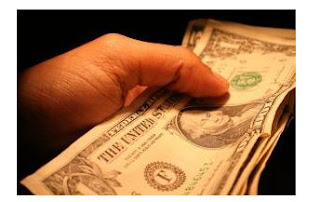
I have just bought a brand new smartphone from Digi with 1-year of FREE Internet plus a Prepaid SIM Pack of RM30 credit and 24-hour FREE calls & SMS to Buddyz™ up to three DiGi numbers free of charge at only RM180. There is no contract involved. I wanted to pay by credit card, but the booth at the mall accepts only cash.
I have been using a mobile phone all along but lately, I am unable to perform online banking and receive my TAC numbers (A Transaction Authorisation Code is a unique, 6-digit code that provides an additional layer of identity authentication before you are allowed to perform specific tasks online) from Malayan Banking Berhad via my mobile phone.
|
The smartphone is a LENOVA A369i which is made in China with the following specifications:
GENERAL
|
GSM 900 / 1800 / 1900 - SIM 1 & SIM 2
|
|
HSDPA 900 / 2100
|
||
Dual SIM (Mini-SIM, dual stand-by)
|
||
2013, Q3
|
||
Available. Released 2013, Q3
|
BODY
|
124 x 64 x 11.7 mm (4.88 x 2.52 x 0.46 in)
|
|
120 g (4.23 oz)
|
DISPLAY
|
Capacitive touchscreen
|
|
480 x 800 pixels, 4.0 inches (~233 ppi pixel density)
|
||
Yes
|
SOUND
|
Vibration; MP3, WAV ringtones
|
|
Yes
|
||
Yes
|
MEMORY
|
microSD, up to 32 GB
|
|
4 GB ROM, 512 MB RAM
|
DATA
|
Yes
|
|
Yes
|
||
HSDPA, 7.2 Mbps; HSUPA, 5.76 Mbps
|
||
Wi-Fi 802.11 b/g/n, Wi-Fi hotspot
|
||
v3.0
|
||
Micro USB v2.0
|
CAMERA
|
2 MP, 1600 x 1200 pixels
|
|
Panorama, smile detection
|
||
Yes
|
||
No
|
FEATURES
|
Android OS, v4.2.2 (Jelly Bean)
|
|
Mediatek MT6572
|
||
Dual-core 1.3 GHz Cortex-A7
|
||
Mali-400
|
||
Accelerometer, proximity
|
||
SMS(threaded view), MMS, Email, Push Mail, IM
|
||
HTML
|
||
FM radio
|
||
A-GPS only
|
||
Yes, via Java MIDP emulator
|
||
Black
|
||
- MP4/H.264/H.263 player
- MP3/WAV/eAAC+ player - Organizer - Photo/video editor - Document viewer - Google Search, Maps, Gmail, YouTube, Calendar, Google Talk - Voice memo/dial - Predictive text input |
BATTERY
|
Li-Po 1500 mAh battery
|
|
Up to 288 h (2G) / Up to 288 h (3G)
|
||
Up to 14 h 30 min (2G) / Up to 8 h (3G)
|
MISC
|
Source: http://www.gsmarena.com/lenovo_a369i-5850.php
You can purchase the set online at http://new.digi.com.my/ecomm_C/services/default/Whatshot_Internet_Made_Easy?gclid=CjwKEAjw2MOhBRCq-Nr87_j-lDASJAAl4FNhgjUCeBqTbisHLpfOyOw1EvXunvXp0fZee4dtc9TP6RoCYRTw_wcB or at their booths in most malls. The smartphone is released in September 2013. The cost of the smartphone is only RM150 and you pay for the RM30 credit. Nothing is free.
Can you get a much cheaper smartphone?








